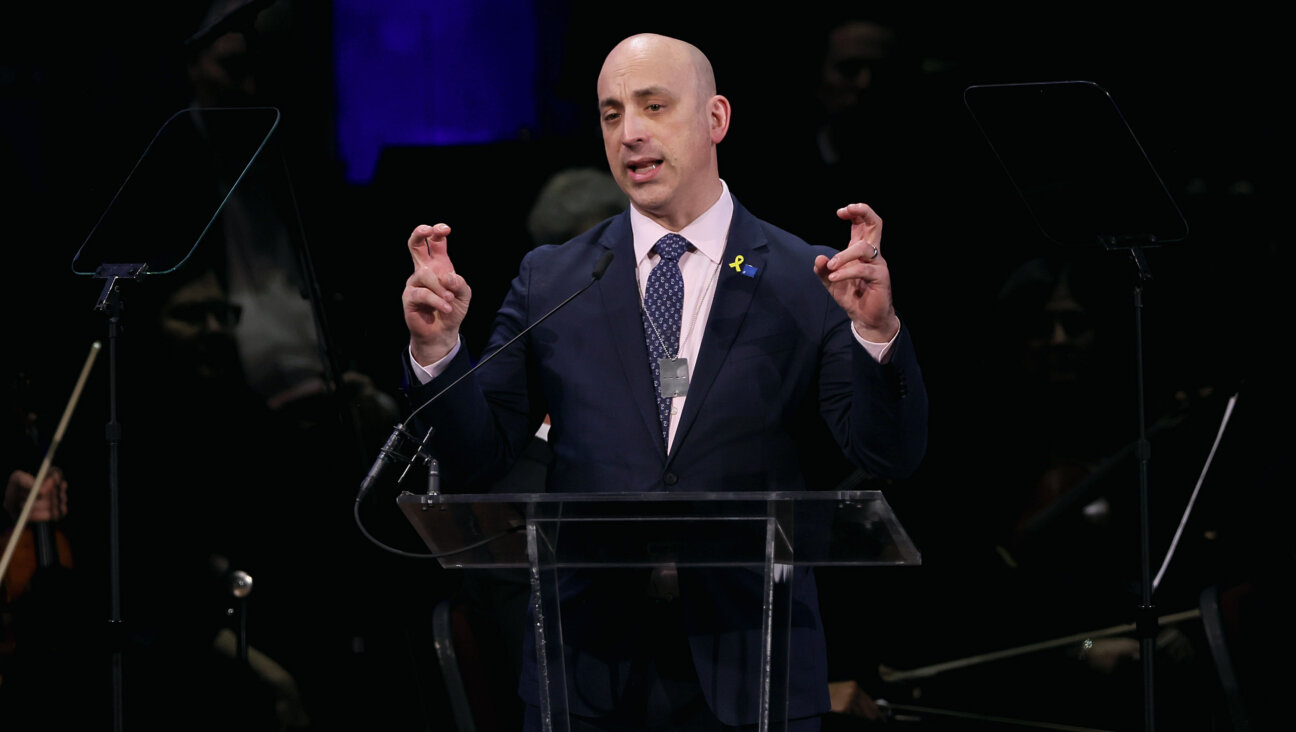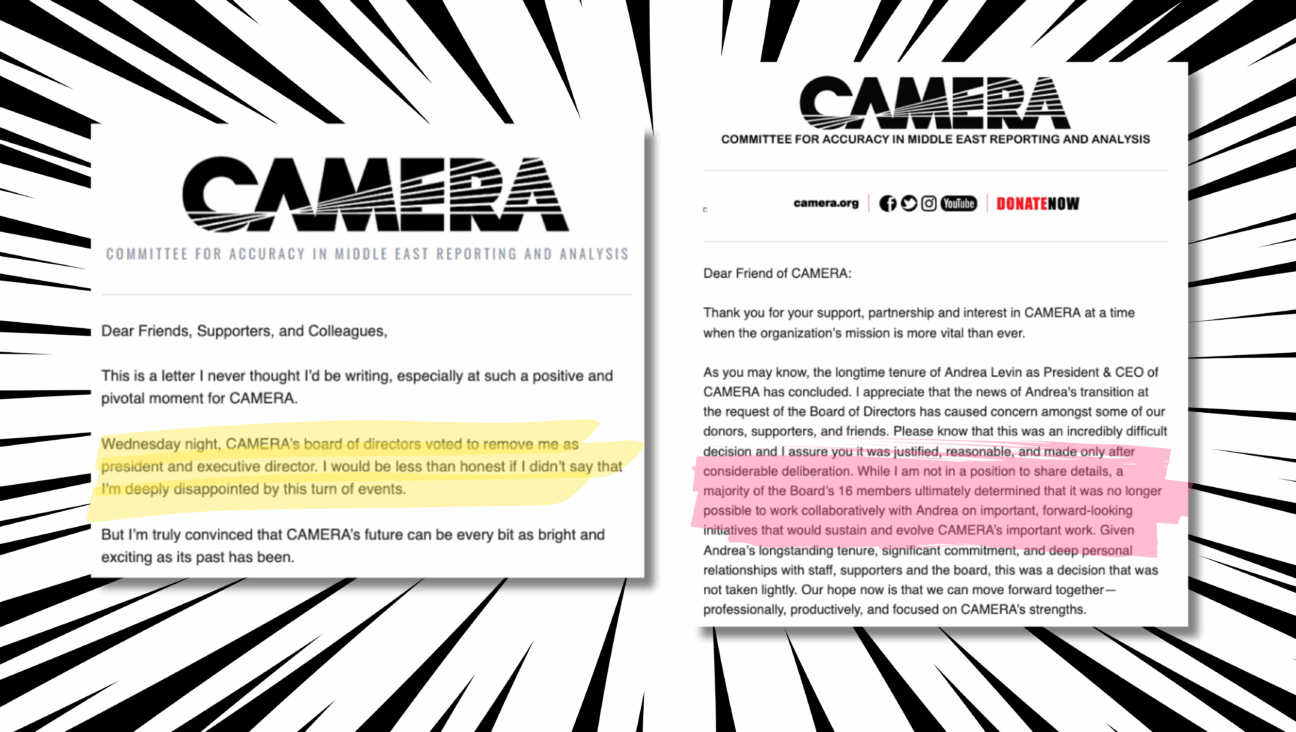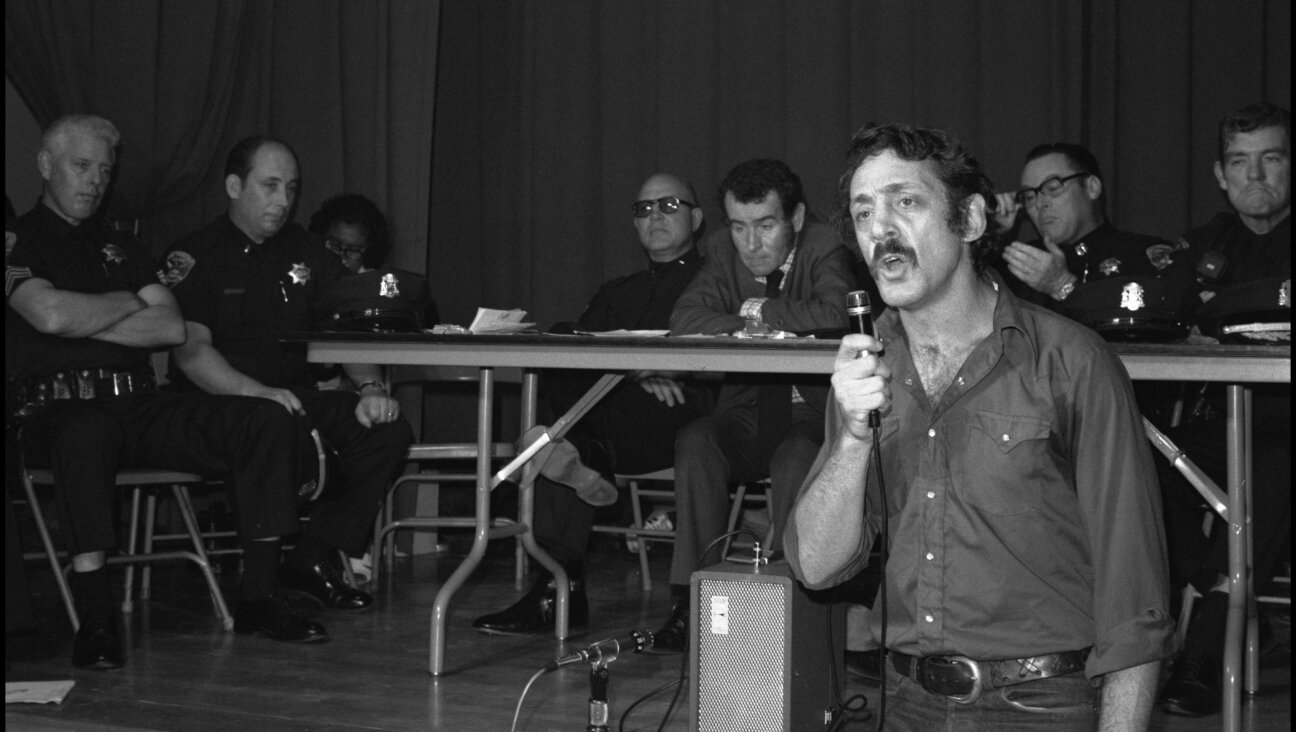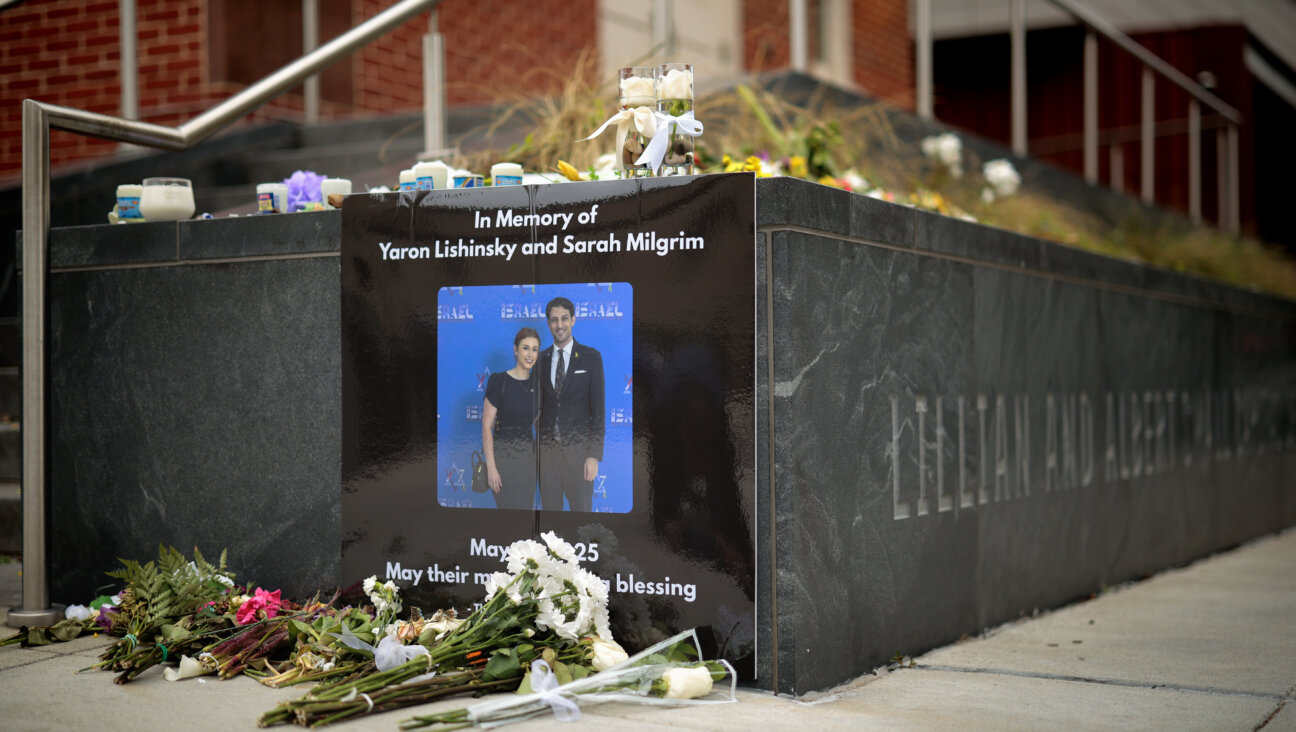Policies Split Clergy, Secular Leaders
Tax cuts are not a Jewish issue.
So says Stephen Hoffman, the president and CEO of United Jewish Communities, the central coordinating body of Jewish welfare federations across North America.
“How Congress decides to assemble the revenue of the United States is not a Jewish issue,” Hoffman recently told the Forward. “The Jewish issue is what Congress does with the money.”
This verdict has ruffled some feathers among American rabbis, who understandably wonder exactly when Hoffman became the arbiter of the collective Jewish conscience. It would have been one thing for the federation movement’s top professional to state that his organization was sitting out the tax debate because its board was unable to forge a consensus position on the issue. But Hoffman’s remark went much further, arguing in effect that the regressive or progressive nature of the country’s tax code, and its impact on the nation’s economy, are not issues that register one way or another on the Jewish community’s moral compass.
As it turns out, leaders of Reform Judaism and Conservative Judaism, the country’s two largest synagogue movements, adamantly disagree with Hoffman, arguing that President Bush’s tax-cutting measures are unfairly regressive, will do little to stimulate the economy and will end up ballooning the federal deficit.
It appears that a gap on domestic issues, as well as the peace process, is emerging between secular groups, such as UJC, and the rabbinical unions. On domestic issues, Reform and Conservative rabbis seem much more willing to highlight their differences with the Bush administration’s policies, while officials at several secular organizations have been generally avoiding direct confrontations with the White House in an effort to maintain the administration’s strong support for Israel.
In fact, the peace process also appears to be driving a wedge between the two camps. In response to the administration’s efforts to implement the American-backed “road map” peace plan, several secular organizations have displayed a growing willingness to criticize aspects of Bush’s Middle East policy and are pushing the administration to grant Israel a free hand in fighting terrorism. While Reform and Conservative groups have also been firm on the need for a crackdown on terrorism, they have issued statements urging Bush to continue pushing the parties toward peace.
The end result is a multifront split, with rabbinical groups marching to the left of secular organizations.
A split between religious and secular leadership is certainly not a radical development in Jewish society. Biblical history is packed with clashes pitting the political monarchy and the religious priests against each other. In Europe, tensions often marked the relations between the chief rabbinate and the lay community council, or kehilla. The only question is which side holds sway in any given era.
And, now, the answer is fairly clear. The Reform and Conservative movements can claim to represent synagogues with hundreds of thousands of member households, but the real address in Washington for the Jewish community is the vast array of secular organizations: On the peace process and other Middle East issues, the Jewish voice that speaks loudest comes from the American Israel Public Affairs Committee; foreign embassies tend to look to the American Jewish Committee; the Anti-Defamation League is generally the first call on antisemitism; the American Jewish Congress has historically served as the community’s top legal department when it comes to fighting church-state issues in court; and UJC is seen as setting the agenda on tax and budget policies affecting social services.
Even the Reform movement, with its widely respected Religious Action Center, has failed to emerge as the premier Washington address on any one issue of concern to most other Jewish groups. In large part, that’s because the movement chooses to focus on a wide spectrum of issues, said the center’s director, Rabbi David Saperstein. But as a result of their broad agenda, he said, the center often plays a key role in forming and representing the Jewish community in broad-based multiethnic coalitions.
At least the Reform movement has a policy office in Washington. While Conservative leaders can lay claim to the iconic image of Rabbi Abraham Joshua Heschel marching with Reverend Martin Luther King Jr., the legacy of rabbinical activism — at least on Capitol Hill — belongs to the Reform movement and several Orthodox groups that have opened Washington action offices in recent years.
In an effort to boost its profile and get its liberal policy message out, the Conservative movement’s Rabbinical Assembly sent a 30-person delegation to the nation’s capital this week. The rabbis met with a number of congressmen and officials from several like-minded non-Jewish advocacy groups, as well as Saperstein and the Orthodox Union’s Washington representative, Nathan Diament. Still, Rabbi Lee Paskind, the organizer of the Conservative movement’s trip, said that until his group follows through on plans to establish a Washington office, its influence will be limited, especially compared to other Jewish denominations and religious groups.
Even an expanded Conservative presence in Washington, however, would probably do little to alter the current balance of power between religious and secular organizations, since a complex mix of historical, organizational and sociological factors accounts for the lopsided tilt in favor of secular groups.
So for the time being, despite what the rabbis might say, a tax policy that shifts the burden to the poor and threatens to run up unprecedented deficits is not a Jewish issue in Washington.




















